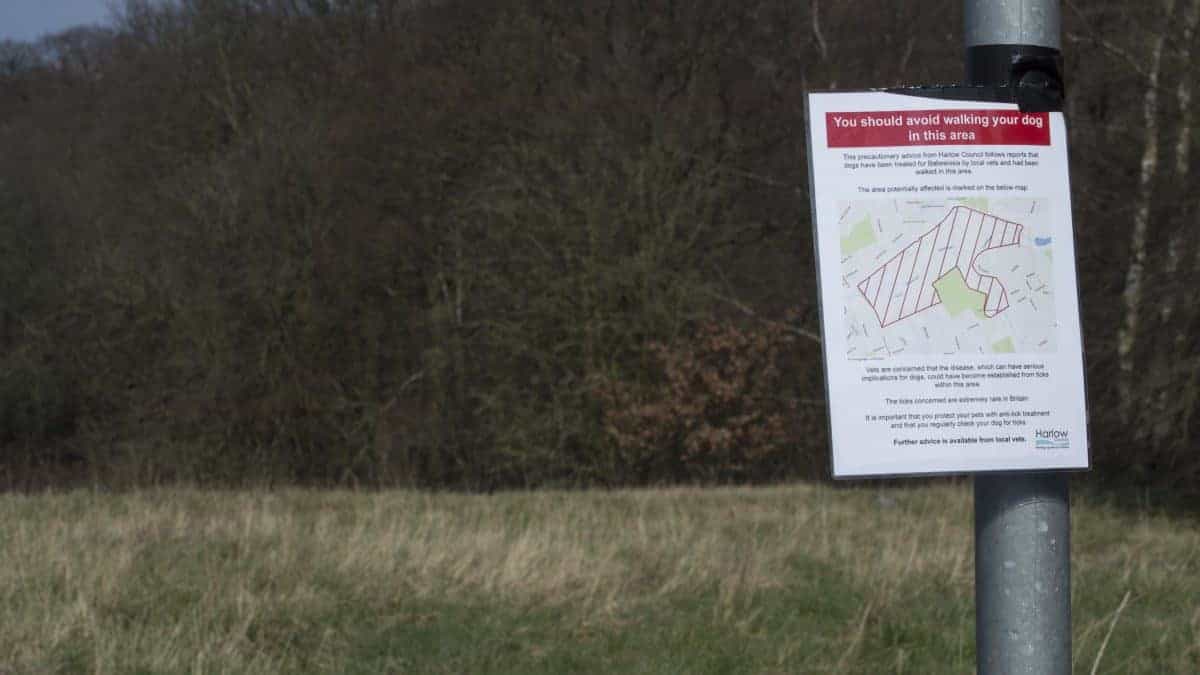Dog owners warned to look out for deadly tick

Dog owners are being warned to watch out for ticks, after two dogs in Essex died from a disease carried by the parasites.
First UK outbreak
This is the first time an outbreak of babesiosis has been reported in the UK. Ticks carrying the disease have been found in fields in Harlow in Essex, where two dogs have died and three others needed blood transfusions.
Signs have been put up advising dog owners not to walk their dogs in certain areas – however, vetsbelieve it will be impossible to stop the disease spreading.
The Animal and Plant Health Agency and Public Health England have been called in to investigate.
Devastation
Vet Clive Swainsbury treated one of the dogs that died at the Forest Veterinary Centre in Harlow. He explained how the parasitic disease causes such devastation.
“The parasite enters the bloodstream, enters the cells, and in the process of trying to kill the parasite the dog will actually destroy its own blood cells,” the vet told the BBC. “So they become very anaemic.”
While the disease has only been reported in Essex, it is likely to be spread further afield by the female ticks, which lay thousands of eggs.
Symptoms to look for
According to Clive, as the animals move around the disease will be spread.
“Although you can advise dog walkers not to go there, it’s possible that foxes and other animals will transport these ticks,” he said.
Babesiosis is not contagious between dogs. Symptoms include weakness, lethargy, pale gums, red urine and fever.
Raised risks
It used to be compulsory for imported dogs to be treated for ticks before being allowed into the UK and Ireland. However, these regulations were dropped in January 2012. Clive believes increased pet travel had raised the risks of the disease spreading.
“There has been a marked increase in the number of dogs being rescued from abroad into the area but we are at a loss to know why the requirement to treat dogs for ticks upon entry to the UK was relaxed,” he said.
Clive has advised allvets consider the possibility of babesiosis in anaemic dogs, even if they haven’t travelled.






